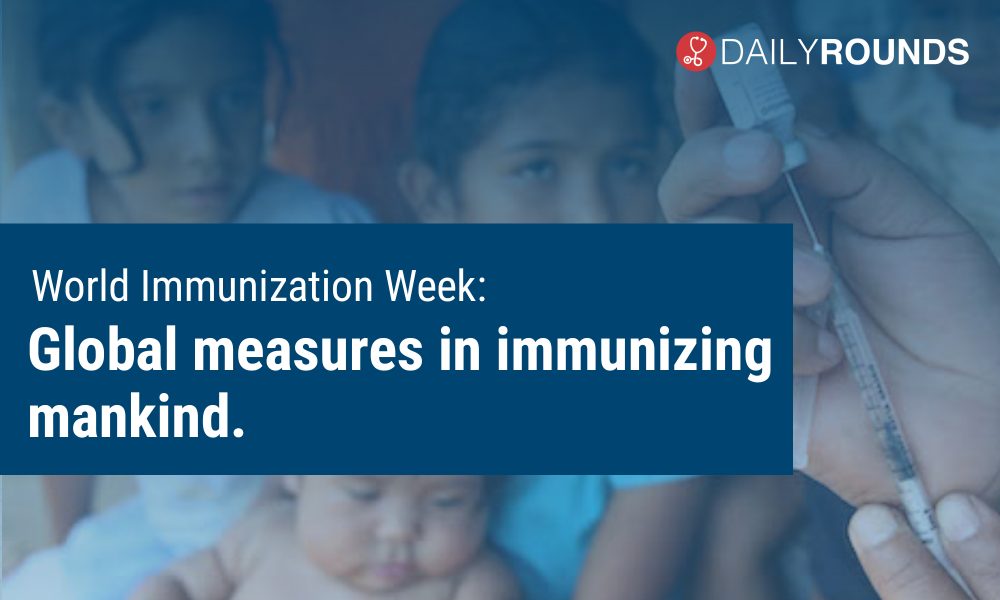
“An ounce of prevention is worth a pound of cure.”
The world immunization week of 2020 has come at a time, when the entire globe is under the dark clouds of coronavirus pandemic. The immunization week observed from 24th to 30th April is aimed at raising awareness about timely vaccination and to increase the immunization against vaccine-preventable diseases.
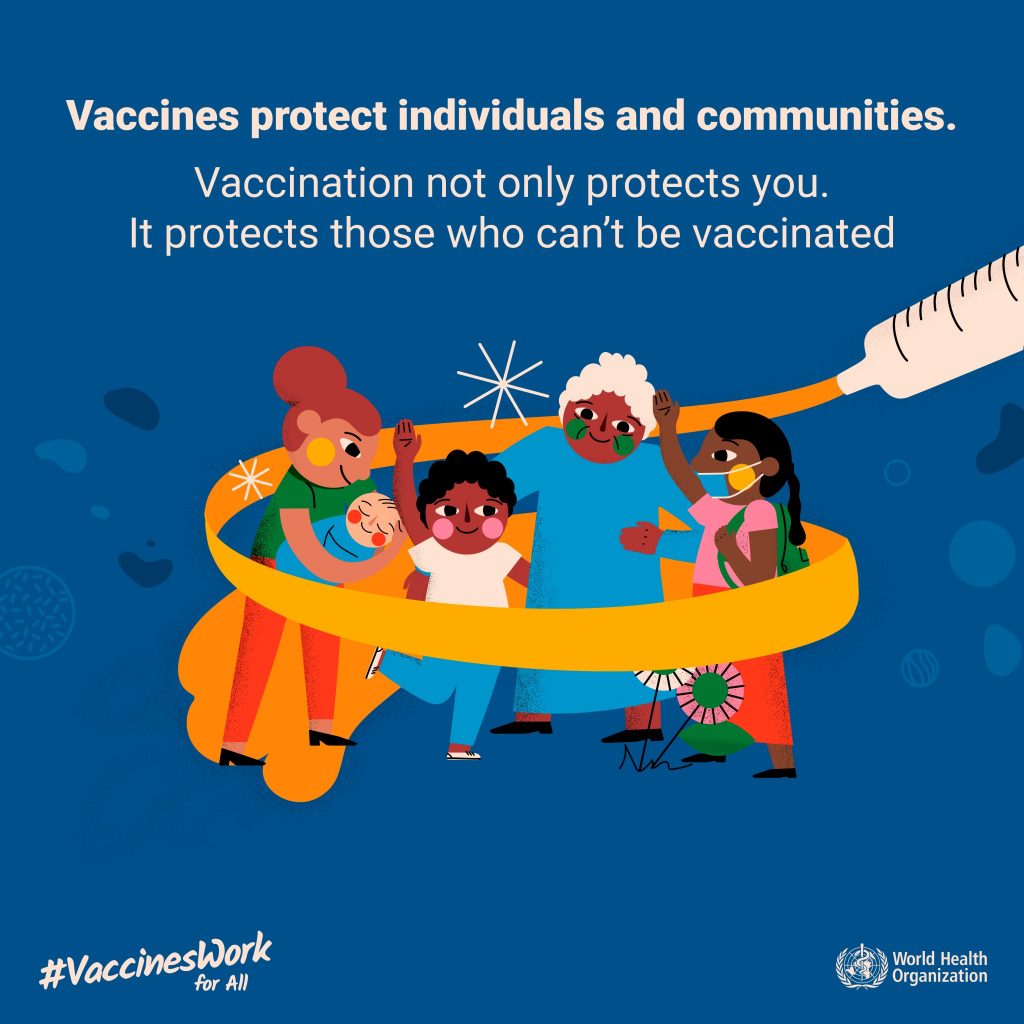
With the theme #VaccinesWork for All, the campaign focuses on how vaccines, as well as the people who develop, deliver and receive them, are true heroes by working to protect the health of everyone, everywhere.
As part of the campaign WHO aims to:
- Demonstrate the value of vaccines for the health of children, communities, and the world.
- Show how routine immunization is the foundation for strong, resilient health systems and universal health coverage.
- Highlight the need to build on immunization progress while addressing gaps, including through increased investment in vaccines and immunization.
The success story of Vaccination
There’s no question that immunization is one of the greatest success stories in the history of global healthcare, saving over three million lives every year. It is considered as one of the most efficacious and cost-effective health interventions, and rightly so. According to WHO reports, 86% of infants across the globe received three doses of DTP-3 vaccine during the year 2018. Which in turn protected them from life-threatening tetanus, diphtheria, and pertussis.
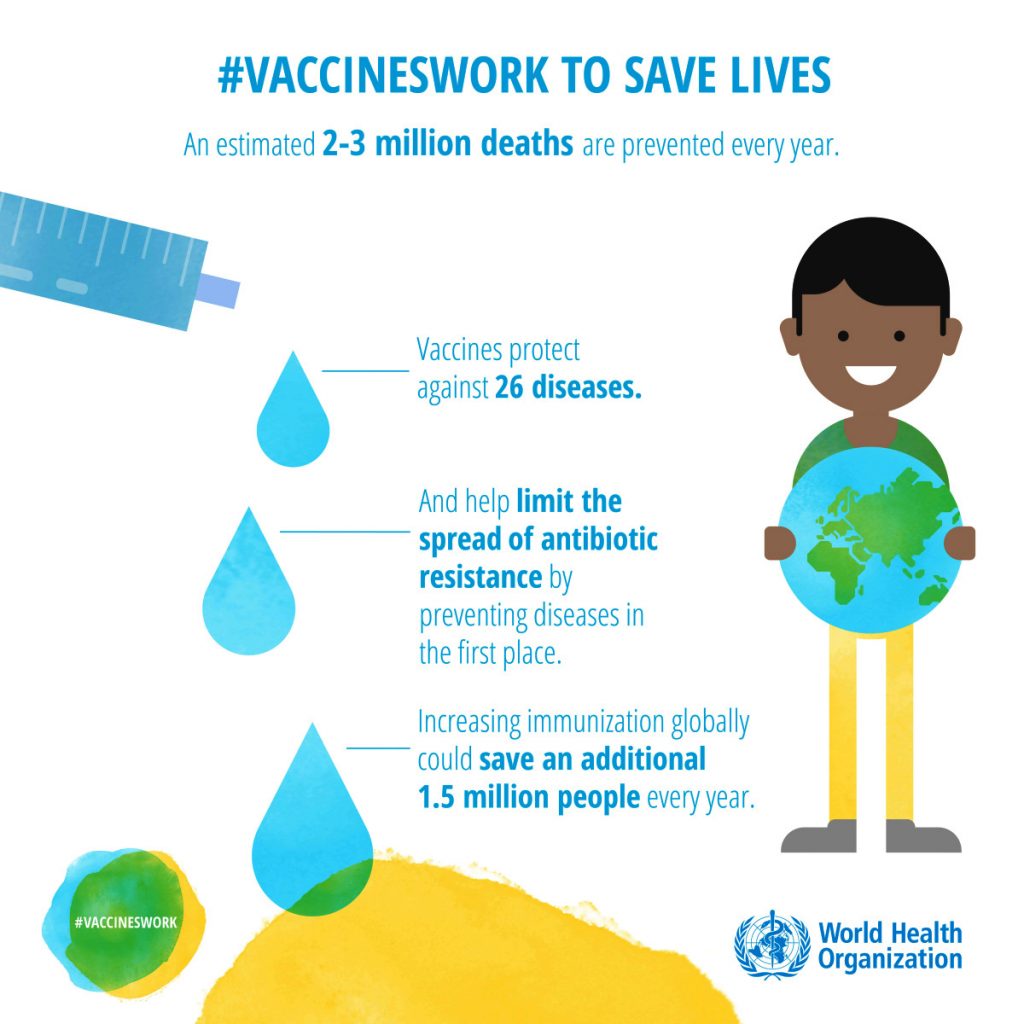
Today, we can put a stop to almost 26 vaccine-preventable diseases with the help of proper immunization. The human race in today’s times is well equipped to take on the fight against malaria, typhoid, and Ebola, thanks to the never-ending research and development in the field of medical service.
How immune is India?
The Indian track record in vaccine coverage doesn’t sound that good. Two out of five infants in India do not receive complete immunization, leaving them susceptible to these preventable-diseases. Even after conducting 30 years of immunization campaigns, the country reports only a slow growth rate when it comes to immunization coverage.
Over time, India’s vaccination coverage has only grown from 35% in 1992-93 to 62% in 2015-16. Initiatives such as Mission Indradhanush were formulated to improve the growth rate of vaccination in the country. The mission, launched in December 2014, was aimed to ensure that 90% of infants would be vaccinated by 2020. Under Intensified Mission Indradhanush 2.0 (IMI 2.0), the second phase of the initiative launched on October 31, 2019, immunization is set to be carried out in 271 districts across the country where fewer than 70% of infants are currently vaccinated. As a result, the rate of growth rose to 6 percentage points over the past five years.
Lack of awareness & misinformation; the major challenges
The low immunization coverage in the country is an aftereffect of lack of awareness about the benefits of vaccination and the misinformation/misconceptions regarding vaccines. Other reasons include fear of side effects, migration of families, refusal to get vaccinated, and shortcomings in the implementation of the scheme.

Immunization in the time of global pandemic
Due to the global outbreak of coronavirus pandemic, there is a high risk of disruption to routine immunization activities all across the world. Disruption can happen mainly because of two reasons:
- Existing COVID-19 burden on the healthcare system
- Physical distancing requirements and community reluctance imposed by the pandemic.
However, outbreaks of vaccine-preventable diseases could be catastrophic for communities and healthcare systems already battling against the ill effects of COVID-19. It should be noted that last year, measles caused more than 6000 deaths in the Democratic Republic of Congo – a country fighting its largest Ebola outbreak – as the country faced a deadly convergence of diseases.
“WHO is working constantly with partners and scientists to accelerate vaccine development for COVID-19, but we must also ensure people are protected against those diseases for which vaccines already exist,” said Dr. Katherine O’Brien, Director of the Immunization, Vaccines and Biologicals Programme at WHO.
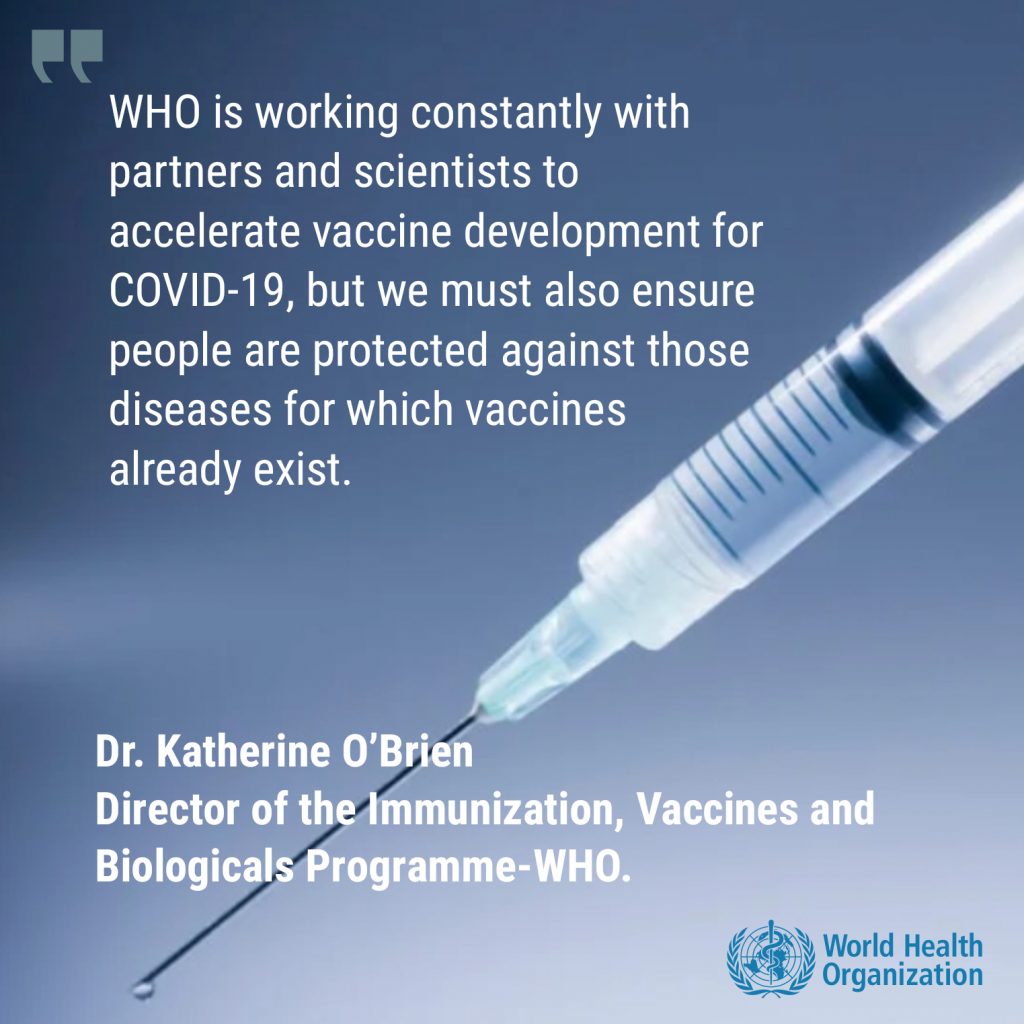
WHO has released a series of guiding principles for immunization activities during the time of the global pandemic. According to it, all immunization services must consider the importance of both ensuring people are protected against preventable diseases, as well as the safety of communities and health workers during these unprecedented circumstances.
Vaccine to keep the global pandemic under control
As coronavirus rampages all across the world, nations and communities are eagerly waiting for the arrival of a vaccine that will help keep the pandemic under total control. Various researches and developments are happening in different parts of the world in this regard. However, developing a vaccine would take more time than expected, given the complexities and regulations involved.
Production of vaccines is a long process that usually involves a minimum of three stages of clinical or human trails. It comprises tests for checking the safety, side effects, and the ability to induce immunity.
Several private and government/institutional aided participants from across the globe are taking part in the race to develop a vaccine against the novel coronavirus. Even though some of them trembled in between, the others are sprinting towards the final lap at a fast pace.
According to the World Health Organisation’s global database of research into the novel coronavirus, there are currently seven vaccine candidates being tried on humans. Among these, Ad5-nCoV – produced by Chinese biotech firm CanSino Biologics and an arm of the People’s Liberation Army was the first novel coronavirus vaccine to enter human trials.
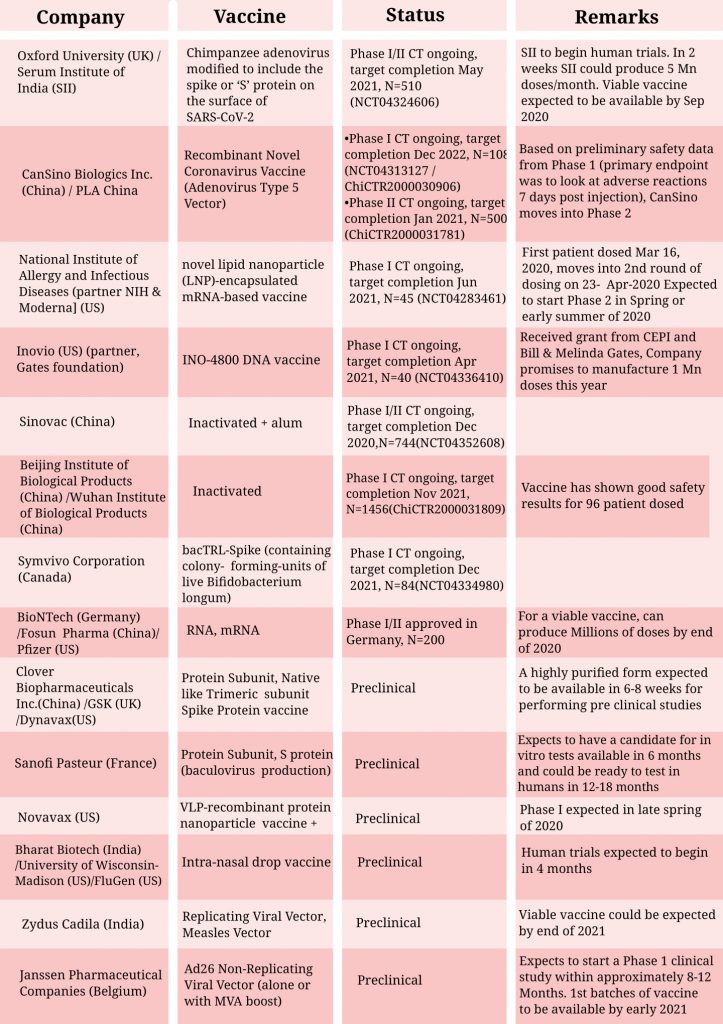
According to the PTI report, six Indian firms are also engaged in developing a novel coronavirus vaccine, either independently or in partnerships with international companies. Among this, the Serum Institute of India will be manufacturing Oxford University’s coronavirus vaccine in anticipation of clinical trials succeeding by September-October in the UK. “We are planning to make the vaccine available at an affordable price of around 1,000 rupees in India” said Adar Poonawalla, CEO- Serum Institute of India.
However, If a vaccine is developed, then there will be a limited supply, at least in the initial period, so it will be important to prioritize the recipients. In such a scenario, the warriors in white coats who are at the forefront of our battle against novel coronavirus would certainly top the list.